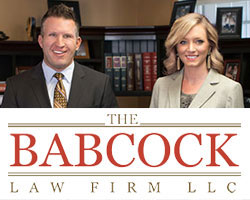
The economic landscape is always changing, which means marketing strategies are changing along with them. In our own era of history, those changes always seem to come sooner rather than later.
With that in mind, let’s consider 3 unique legal marketing challenges that law firms will face in 2021.
1. Staying people-focused
We’re living in the rise of the machines. Studies show that 85 percent of all law firm interactions with clients and prospects are done with artificial intelligence (AI). The use of AI to increase efficiency at dealing with questions that are basic and repetitive is reasonable and accepted, but it does leave a significant vacuum—the desire for human contact.
Just because a prospect is okay with answering some basic questions from an AI bot doesn’t mean they aren’t going to want to see a real human being. The law firm websites that can put real people in front of their prospects quickest are going to have a competitive advantage.
One way to do that is to create video content for your website. If you market a small law firm, this is a good chance to leverage that to your advantage—by creating a video that emphasizes a family and community atmosphere at the office.
On the flip side, a large firm might want to set prospects at ease with a “meet the people behind the brand” video where the lawyers can humanize themselves a little more.
However you proceed, the key takeaway here is that the rise of the machines is having the ironic side effect of making people desire the personal touch a little more. Technology can do a lot, but it can’t change human nature.
2. Voice and semantic search
The desire to ask Siri or Alexa for information rather than typing in a search continues to grow. With it, search engine algorithms keep getting smarter about what the user intent is behind each search—and what each individual user probably means, in light of their web-browsing history. The latter tendency is what SEO professionals call “semantic search.”
The simplest way to address this is to create great content that answers questions. The longer a search query, the more likely a search engine is likely to rely on the so-called “long-tail keyword” as opposed to the concise phrase. This is going to open up opportunities for pages that have real, in-depth content to gain ranking position.
The reason is simple—the more in-depth the content, the better the odds that it’s going to answer the more detailed question that voice and semantic search invites.
3. There’s riches in niches
Search engine marketing has always rewarded niches and the voice/semantic search trend noted above is only going to accelerate that. The more focused the niche, the more likely you are to rank. The more detailed the search query, the more likely a user will ask for increasingly specific areas of law.
This has significant implications, not just for your marketing, but potentially for the entire orientation of your practice. If there’s one narrow area of law that you knock it out of the park with, the SEO landscape is changing to work in your favor. You might consider creating a special service page for your website for these more focused practice areas to capitalize on these niches.





